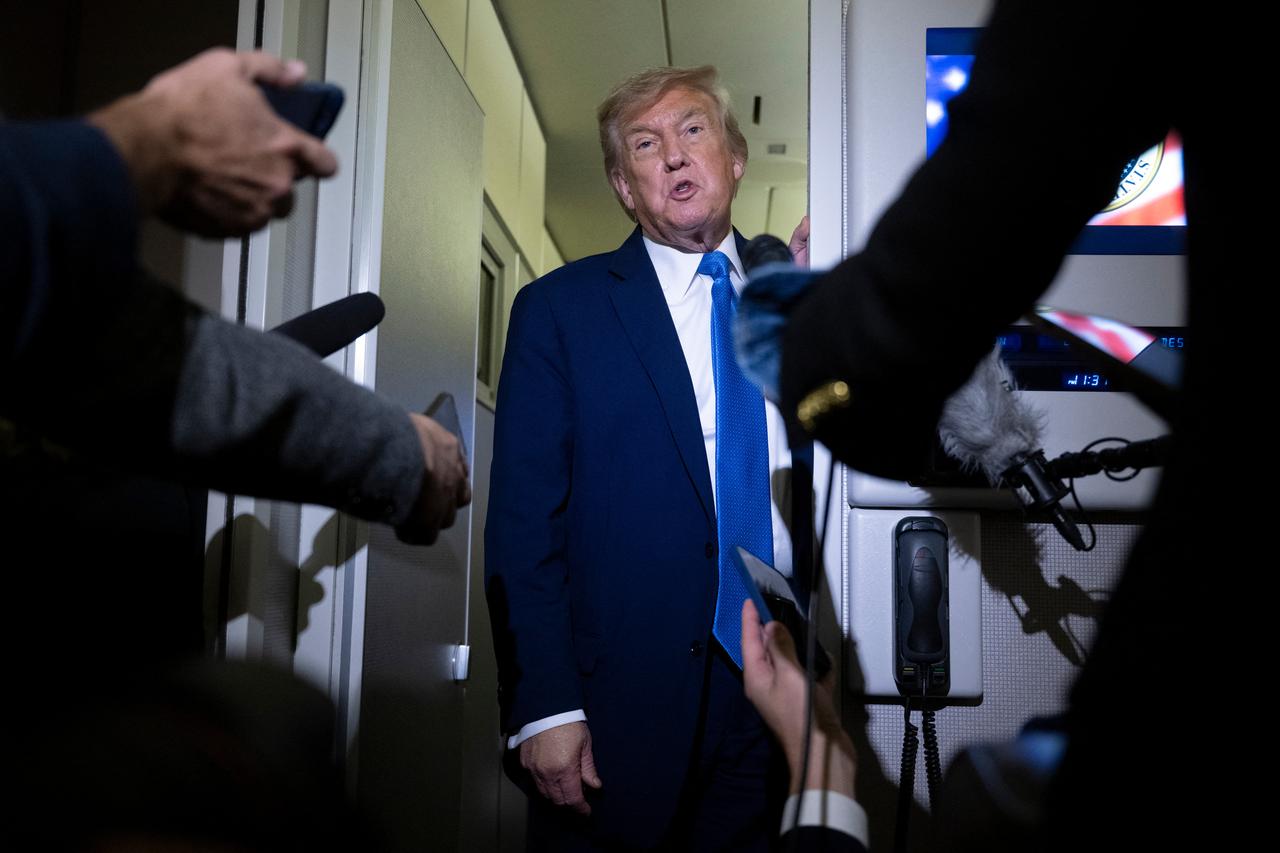
U.S. President Donald Trump said early Tuesday that he is seeking "a real end" to Iran's nuclear program, adding that he will be monitoring developments in the Middle East from the White House later in the day.
Speaking to reporters on his return flight from a G7 leaders' summit in Canada, Trump ruled out the possibility of calling for a ceasefire in the Iran-Israel conflict.
"I didn't say I was looking for a cease-fire," Trump said, according to CBS News reporter Jennifer Jacobs on X. Instead, he stressed the need for Iran to give up its nuclear activities completely.
Trump said he is seeking "a real end," which involves Iran "giving up entirely" on nuclear weapons.
Regarding Israel's ongoing military strikes, Trump stated, "The Israelis aren't slowing up their barrage on Iran. You're going to find out over the next two days. You're going to find out. Nobody's slowed up so far."
On the possibility of U.S. involvement in the conflict leading to the destruction of Iran's nuclear program, Trump expressed hope that Iran's program "is wiped out long before that."
When asked whether U.S. involvement would destroy Iran's nuclear program, Trump said he hoped the nuclear program would be destroyed much earlier.
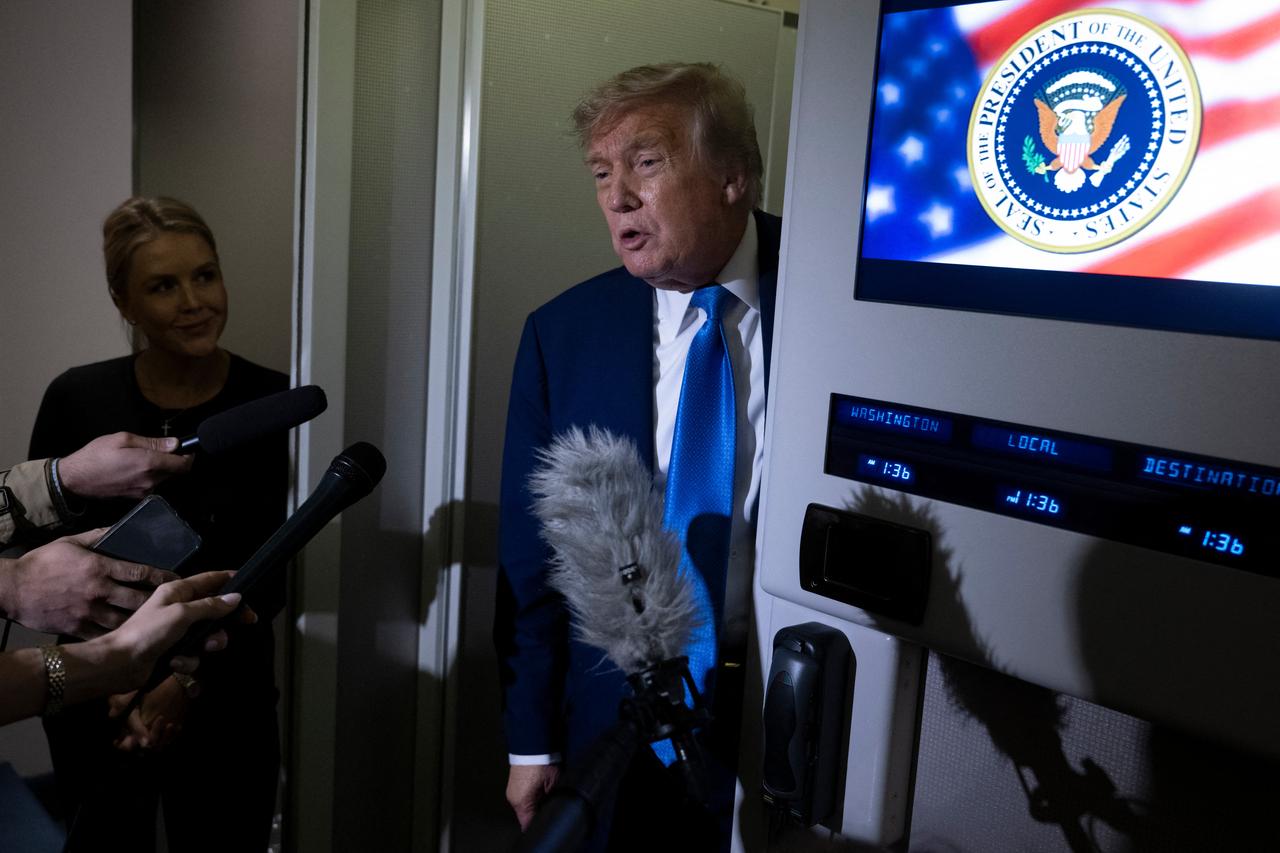
On any potential threat to U.S. interests, Trump said Iran knows not to touch U.S. troops, warning that the US would "come down so hard if they do anything to our people."
When asked about calls for Iran's capital, Tehran, to evacuate, Trump said he wants "people to be safe."
Asked about sending U.S. emissaries such as Steven Witkoff or Vice President JD Vance to meet with Iranian officials, Trump remained noncommittal, saying "I may," adding that his decision "depends what happens when I get back."
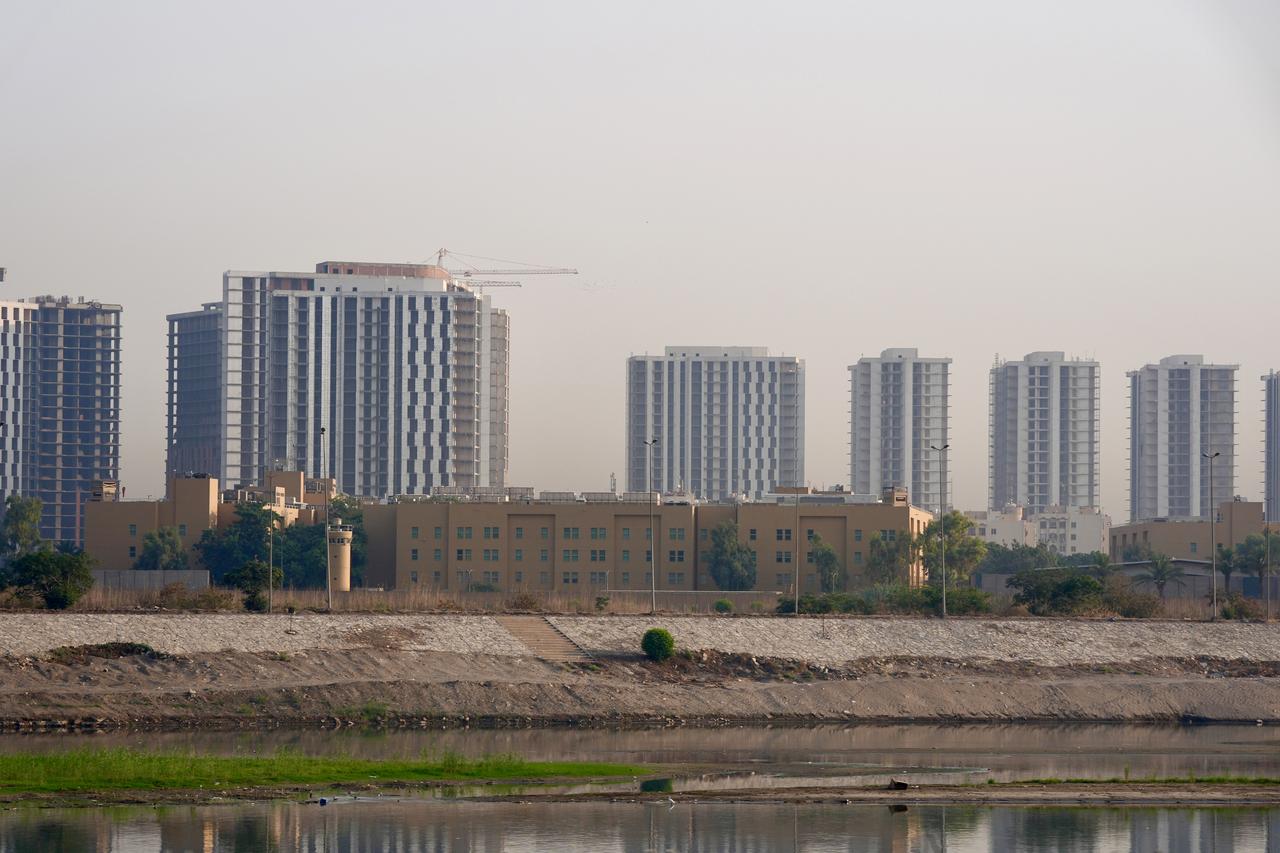
Regarding Israel's ongoing military strikes, Trump stated, "The Israelis aren't slowing up their barrage on Iran. You're going to find out over the next two days. You're going to find out. Nobody's slowed up so far."
Trump defended that Israel's attacks on Iran would not slow down, saying, "You will learn in the next two days. No one has slowed down so far."
When asked whether North Korea or Russia was helping Iran, Trump said, "I haven't seen anything like that."
Trump emphasized that Iran is "very close" to developing nuclear weapons and stated that while airspace was closed, efforts were being made for Americans to leave the region, saying, "We're doing the best we can."
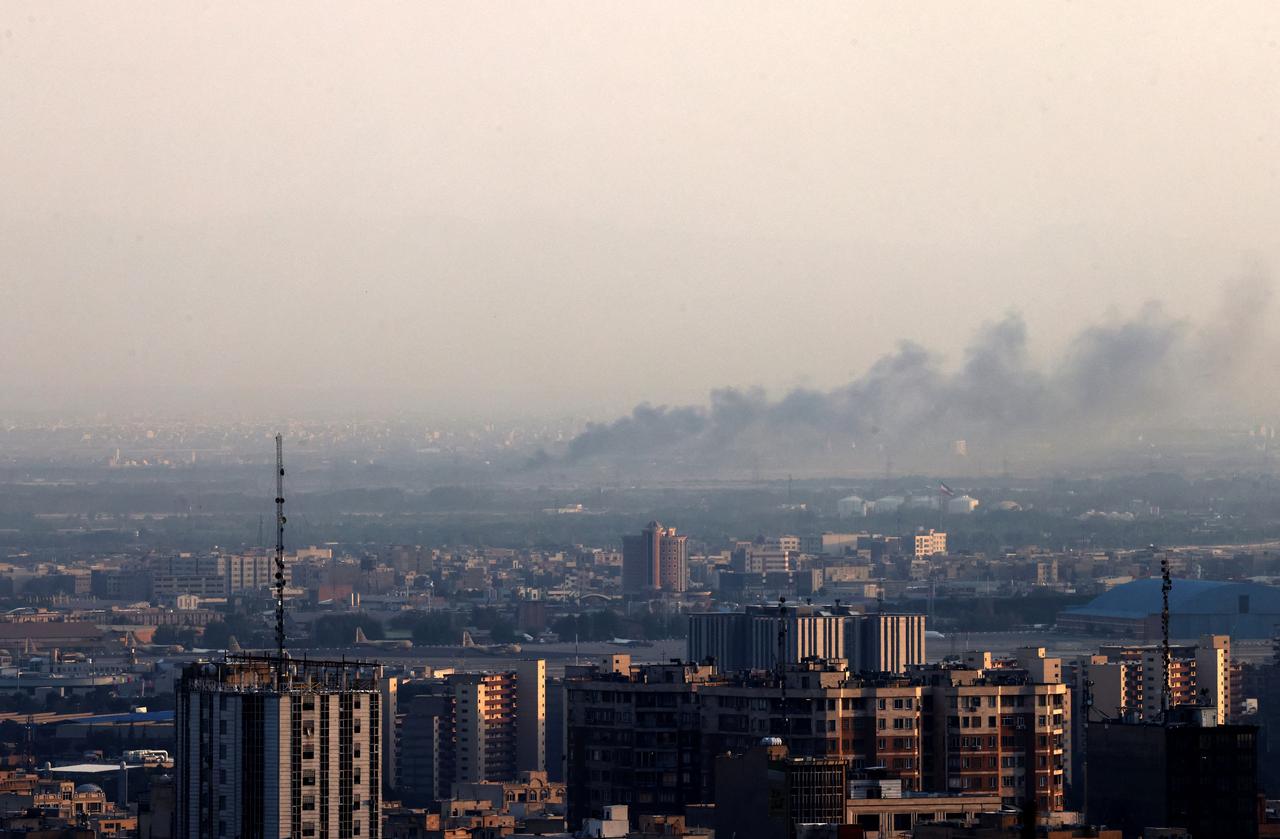
When asked whether the Joint Chiefs of Staff chairman and the U.S. defense secretary have provided him with military planning options should Iran attack U.S. bases in the Middle East, Trump declined to comment, saying, "I can't tell you that."
Trump also commented on whether the Gang of Eight—a group of U.S. congressional leaders with access to sensitive intelligence—has been briefed on the situation, saying they would, but "it's not necessary" at this stage.
While airspace was closed, Trump reported that efforts were being made for Americans to leave the region, saying, "We're doing the best we can."
Trump noted that Treasury Secretary Scott Bessent and several others remained behind to meet with G7 leaders, emphasizing that while he hadn't seen the G7 statement yet, he had "authorized them to say some things."
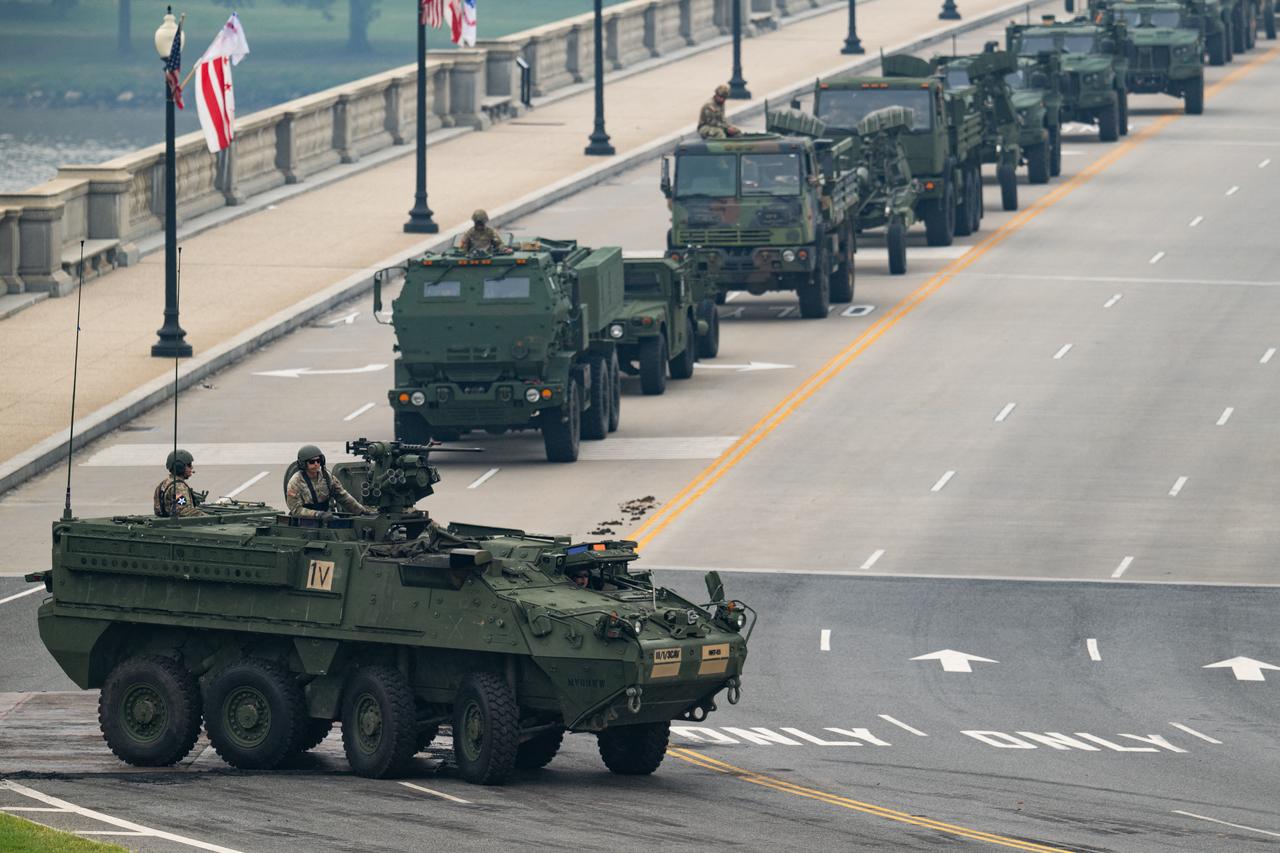
Tensions in the region have intensified since Friday, following Israeli airstrikes targeting several locations across Iran, including military and nuclear sites, which triggered retaliatory attacks from Tehran.
Israeli officials reported that Iranian missile strikes have killed at least 24 people and injured hundreds. Iran stated that the Israeli attacks have resulted in at least 224 deaths and more than 1,000 injuries.
Washington has said Trump was still aiming for a nuclear deal with Iran, even as the military confrontation unfolds.